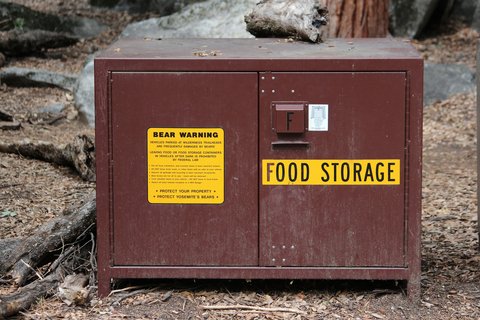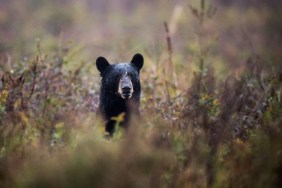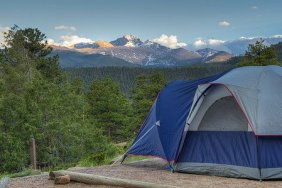
Heading into wilderness country, you need to take certain precautions for worry-free camping. While bear attacks on humans are rare, these animals are showing up in new areas and closer to civilization than ever before. Some simple precautions can help you keep them from tracking to your campsite.
Viewing a bear can be exciting, but only on your turns. Late at night, attracted to the sent of your hotdog is not what you had in mind. If those tantalizing aromas of bacon and sausage in the morning tempt you, their affect on a hungry bear with an acute sense of smell is irresistible and can literally draw them from miles away. Here are four things you can do to bear-proof your campsite.
1. Rethink cooking foods that emit strong odors
Or at the very least cook in an area a good distance away from where you’ll sleep. When available, use the campground’s common cooking shelter for preparing and eating your meals. Don’t cook or eat wearing the same clothes that you wear through your campsite or into your tent. The food smells clinging to your clothing are like an aphrodisiac to bears; they’ll follow you to get a nibble! Reduce the risk of this close encounter by stashing those items in sealed storage.
2. Don’t delay clean up
Bears love leftovers and garbage, and one may draw near if clean up is sloppy. In underdeveloped campsites with no main garbage site, use heavy plastic garbage bags and store them out of sight in your vehicle. Never dump leftovers into the fire pit or toss food-laden washing water into the brush: once the fire dies and the dishwater dries the remaining food particles will be enough to lead bears to the site.
3. Proper storage
The goal is to keep bears from getting even a single scrap of food or garbage, and that means careful, meticulous clean up and proper storage. Keep at least 200 feet away from each location where you sleep, eat, cook and store the food. Never store any food, snacks, or personal hygiene item like toothpaste in a tent. For your storage location, some campsites provide bear poles – also known as bear hangs – so foodstuffs can be hung on a rope high in the air between two trees. Other areas, including many national forest campgrounds with chronic bear activity provide metal storage boxes designed to thwart wildlife. Here is a way to hang your food in a tree. As you can see from the video below, bears will go to great lengths conquering whatever method you attempt.
4. Bear tubes
Lightweight containers called “bear tubes” are made of tough, bear-resistant plastic and can be carried in a backpack. Most tubes weigh 1-3 pounds and are designed to hold up to a six-day food supply for one person. They can be purchased online or at a sporting goods outlet. Like any other form of food storage, bear tubes should be stored at least 200 feet away from the sleep area.








